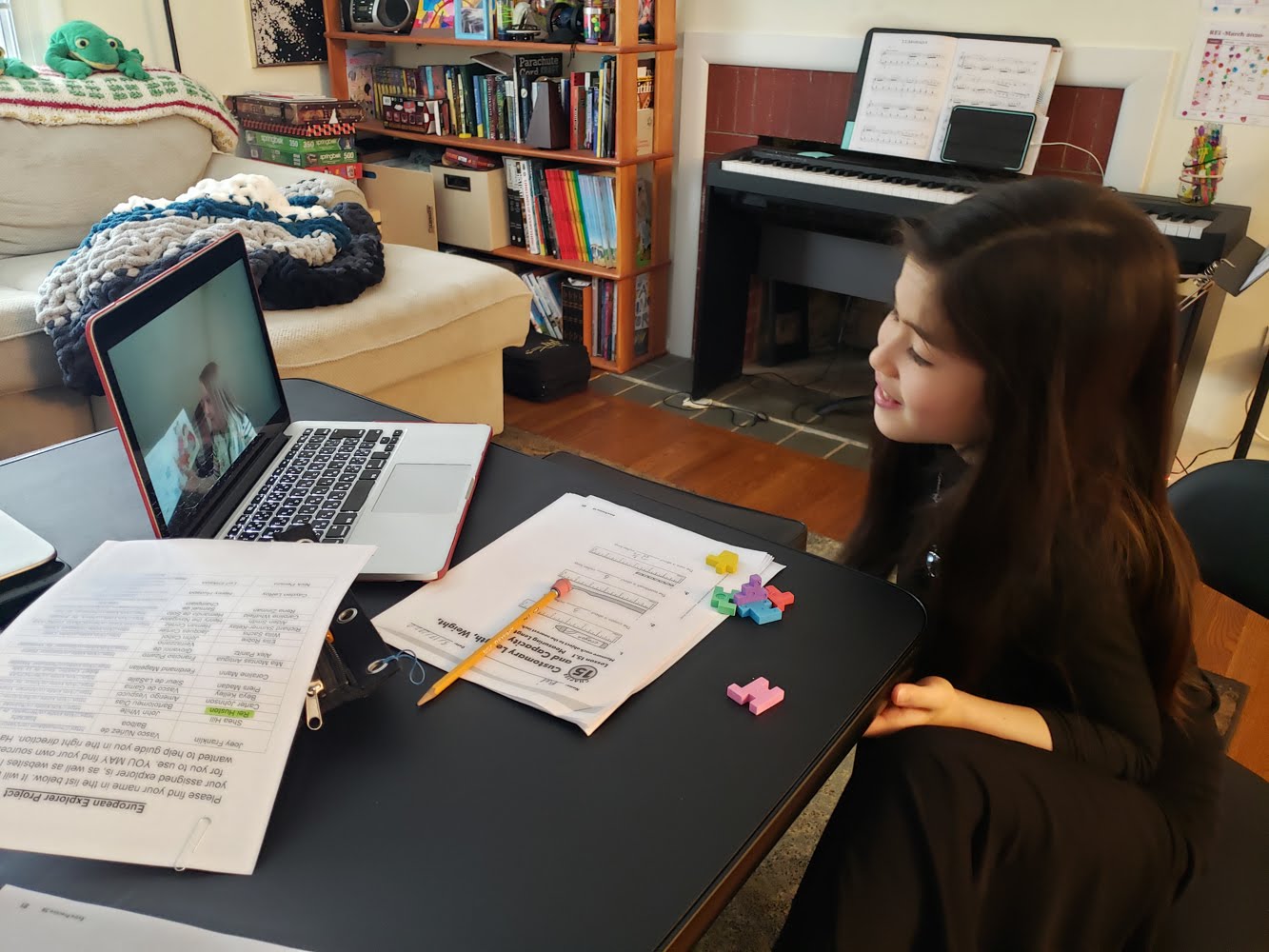
Over the last several years, teachers at Crossroads have discussed the qualities and advantages of having a “growth mindset” over a “fixed mindset”. Many of our discussions have centered on cultivating and modeling mindsets that are most helpful for students as they prepare themselves for a range of challenges they are likely to face during their lifetimes. However, the pandemic that has closed our school for the remainder of the academic year calls for another mindset all together, one that spans both intellectual and social-emotional spheres and will help students and teachers to succeed during today’s new paradigm. After reading hundreds of articles on distance learning, physical and social isolation, and range of other issues set off in a chain reaction by Covid-19, I believe teachers and parents alike need to work toward and model an Equanimity Mindset.
Fostering and maintaining mental calmness, composure, and evenness of temper in our current situation is more important than ever. No matter how much preparation or how hard teachers are working to achieve learning objectives, parents and students need to know that not every lesson will be successful. Expect lots of trial and plenty of error using Zoom and other communication platforms. Furthermore, with each online lesson, pedagogy will need to adapt and assignments will need modification. As one seasoned teacher said to me, “It’s as if I am a first-year teacher again. All of the curriculum I’ve developed has to be modified to work over the Internet and all of the tricks of the trade I’ve learned over the years to keep my student engaged no longer apply.”
Teachers, students, and parents all have to make peace with the fact that some lessons and distant learning will go well, and some of them won’t. This is where equanimity can kick in: we can strive for an awareness that even if instruction doesn’t go as planned, there may be unexpected and sometimes even greater lessons to be learned. This is certainly a time to practice the Core Virtues of perseverance and forgiveness.
Another perspective an Equanimity Mindset can help us hold is the long-term impact of this extraordinary time. Students living through today’s pandemic will recall experiences from this period 50, 60, or even 70 years from now. As educators, we also have to try to hold this long-range perspective and ask ourselves, “Decades from now, what is it that we want our students to remember from the spring of 2020?” Most likely it’s not the same set of goals teachers were attempting to accomplish in our school a month ago. Rather, it is providing a meaningful experience to all of our students who are learning without the direct support of teachers and interactions of friends and classmates. Teachers, students, and parents need time to understand and absorb the long-term impact of their decisions, then make adaptations along the way.
One lesson we are hearing from teachers in China, Hong Kong, and Italy who have been dealing with this situation longer than we have in the United States, is that educators need to reduce the amount of work they require of students and encourage a balance between learning objectives and physical and emotional care. This may be a classic instance when educators need to plan and act with the understanding that “less is more”. This mindset is particularly true for students whose parents are working from home, trying to maintain professional obligations while also supporting distance learning for their children.
And throughout all these challenges, having an Equanimity Mindset will help us to keep a healthy perspective on all of the changes in educational landscapes while juggling what might seem to be dozens of balls in the air. Of course, equanimity is difficult to maintain even in the best of times. There will certainly be instances in the days, weeks, and months ahead when this particular virtue and many others get thrown across the room, crumpled into the trash along with the last virtual homework assignment. But as long as we can strive to have a mental calmness and maintain a broader perspective on this time no matter how difficult our situation may be in this moment, there are lessons to be learned now that we will carry with us long after Crossroads reopens its doors.
One last thought to foster this mindset: there are many school communities around the world without ready access to computers or the Internet, and families closer to home who are supporting children with significant learning differences or who depend on school for regular meals each day. If nothing else, our interconnectedness, the very trait that has allowed this virus to spread, can also foster greater compassion, all with a higher degrees of equanimity along the way.
As we enter the second month of distance learning, I wish you and your family a healthy dose of equanimity and many other virtues we have studied and fostered through the years. These virtues are serving us well now and they will continue to do so when we reopen and reunite as a community.




